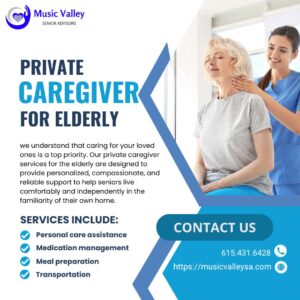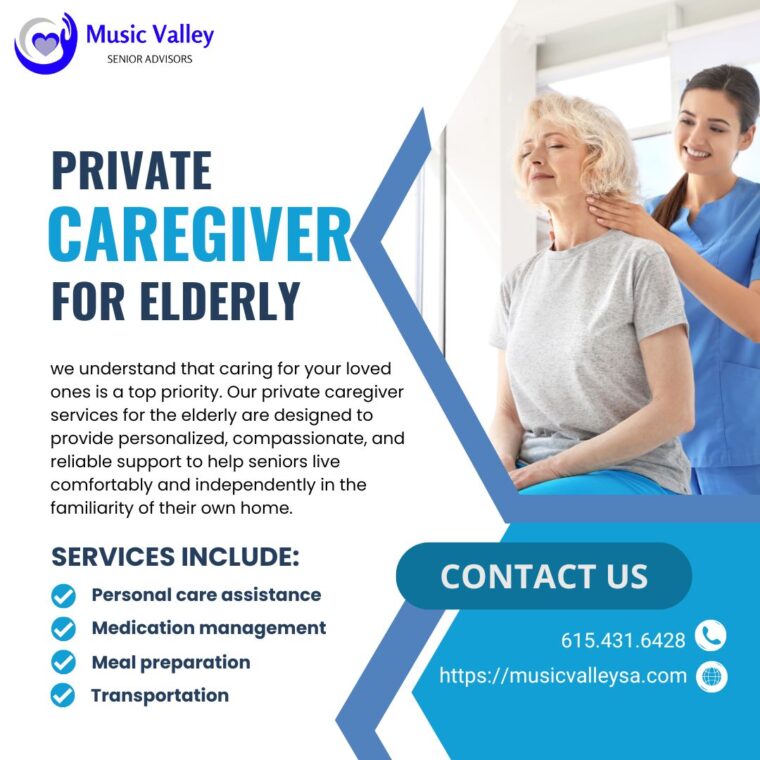Are you struggling to provide the best care for your elderly loved one? As our parents and grandparents age, ensuring their comfort and well-being becomes increasingly challenging. Looking after an elderly family member can be challenging. There are many options to consider, from care homes to hiring Private caregiver for Elderly or even getting nurse care at home. If you’re thinking about compensation for family caregiving duties, it’s essential you know what’s involved.
Understanding these choices helps ensure the best support for your loved one: comparing home-based aid versus professional facilities, evaluating in-home nursing services’ benefits, and exploring whether being paid to care for a relative might work for you. That’s what this guide is all about. Next up, let’s talk about self-care during family caregiver and why it matters so much.

Key responsibilities and duties
Private caregivers for the elderly play a crucial role in maintaining their clients’ quality of life. Their responsibilities include:
- Personal care assistance
- Medication management
- Meal preparation
- Light housekeeping
- Companionship
- Transportation
| Duty | Description |
| Personal care | Bathing, dressing, grooming |
| Medication | Reminders, administration |
| Meals | Planning, cooking, feeding |
| Housekeeping | Cleaning, laundry, organizing |
| Companionship | Conversation, activities |
| Transportation | Doctor appointments, errands |
Care Homes vs. Private Caregivers: Which Is Better?
Choosing care for an elder can be tough. Some people move into a care home where they know help will always be there. These places offer all kinds of support, from daily tasks to nursing care when needed.
But many seniors don’t live in such communities. Often families have to decide on the best way to get their loved one the help they need with everyday chores or more support like what nurses do. It’s not easy because it costs money and takes time too.
You might think about handling this yourself at your house because you believe it’s cheaper or just feel you should look after them personally. Doing so may save cash upfront but remember, caring full-time has hidden expenses – lost wages if you leave work and stress that weighs on your health. Others choose assisted living homes, which cost around $4,000 monthly and include room, food, and professional aid.
Another option is hiring a caregiver directly at an average cost of $15 per hour, compared to agencies’ higher fees. With this path, there are extra things to manage like background checks, legal matters, taxes, payroll, and insurance, which usually fall onto family members. Hiring through an agency offers licensed teams of caregivers matched to provide necessary services, ensuring the safety and comfort of the senior.
Comparing Care Homes and Private Caregivers
Key Differences
| Aspect | Care Homes | Private Caregivers |
| Environment | Institutional | Familiar home setting |
| Personalization | Limited | Highly personalized |
| Cost | Fixed monthly fee | Flexible, based on needs |
| Social Interaction | Group activities | One-on-one attention |
Private caregivers offer personalized care in a familiar environment, while care homes provide structured support with group activities. The choice depends on individual needs, budget, and desired level of independence for the elderly.
How to Get Nurse Care at Home for the Elderly
To get nursing care at home for an elderly person, start by figuring out what help is needed. Think about daily tasks that might be tough to do alone. This can include bathing, getting dressed or making meals.
Talk with your doctor and learn how current health issues may affect future needs. Next up, chat with family and trusted friends about support you need to live safely in your own place. They can provide a hand as informal caregivers along with hired professionals for more assistance if required.
Look into community services offering home-based care options such as personal care support or even chores around the house like cleaning and grocery shopping. Also consider medical aid at home including medication management or physical therapy. It’s smart to tweak your living space now so it fits your changing needs over time – this means checking each room for safety risks regularly!
For organized guidance on caregiving roles, read our free blogs available online at Music Valleysa which also includes tips on self-care when providing support at-home and info on making homes safer for aging individuals. Remember planning ahead makes all these arrangements smoother!
Identifying your elderly loved one’s specific needs
To find the right nurse care at home, start by assessing your loved one’s needs:
- Medical requirements
- Daily living assistance
- Emotional support
| Need Type | Examples |
| Medical | Medication management, wound care |
| Daily | Bathing, dressing, meal preparation |
| Emotional | Companionship, mental stimulation |
Understanding these needs helps in finding a caregiver with the right skills and experience.
Family Caregiver Compensation: What You Need to Know
If you’re caring for an elderly family member, you might be eligible for some financial help. Every state has different rules about this kind of support. They set who can get it, how much money they give and when you can take time off from your job to care as a caregiver.
Don’t know where to start? Your first step is the local labor office. They have all the details on what’s available in your area.
No paid leave program in your state? Check with Area Agencies on Aging (AAA) like us. These groups offer advice and connect individuals like you with services such as adult day programs or help getting meals delivered right to your door.
And if that’s not enough, there are special supports just for veterans too. Programs exist that let them hire a relative using flexible budgets they control themselves. Other benefits provide breaks for caregivers while also looking after the veteran’s needs, and additional monthly payouts might come their way through Aid and Attendance Benefits alongside their usual VA pension.
Remember these resources could really lift some burden off yours shoulders. Take advantage by reaching out! Just call Music Valley or mail us.
They’re ready to answer any questions free-of-charge.
Top Benefits of Hiring a Caregiver for a Family Member
Hiring a private caregiver for elderly family members offers numerous advantages:
- Personalized care
- Familiar environment
- Increased independence
- One-on-one attention
| Benefit | Description |
| Peace of mind | Family knows their loved one is receiving quality care |
| Flexibility | Tailored schedules and services to meet specific needs |
| Cost-effective | Often more affordable than nursing homes |
With these benefits in mind, let’s explore whether private elderly care is the right choice for your loved one.
When you’re thinking about hiring a caregiver for a family member, take time to understand what’s needed. Does your loved one need help with day-to-day stuff? Or medical care too?
If they just need someone to aid in daily tasks and keep them company, private caregivers can be super helpful. If you hire well, it means less change for the elderly person: They stay at home where things feel normal. You deal directly with the caregiver so that control stays with you.
Plus, often this choice is kinder on your wallet than going through an agency. Still worried whether they’ve got right skills or training? When hiring privately, check these details yourself!
It takes extra work but brings peace of mind seeing their qualifications firsthand. Sometimes agencies might run short on people; not ideal when needing immediate help. Good news though – private caregivers fill gaps like these easily because of flexible schedules!
Lastly remember if things aren’t going right between your senior and the aide hired. Switching them isn’t hard compared to dealing within agency rules which could be stricter. Before deciding how best to get caregiving support, weigh up facts carefully together as a family.
Consider budget, lifestyle preferences, and potential emergency situations to create a solid plan that works for everyone, especially the elder whose life is greatly impacted by these choices
Private Elderly Care: Is It Right for Your Loved One?
Choosing the right caregiver for your loved one is important. Let’s look at family caregivers first. They can be a cheaper choice and might not ask for money to care for someone they love deeply.
The care they give comes with real warmth, trust, and understanding of what their relative needs emotionally. Still, there are drawbacks too. Family caregivers might have other life commitments that limit how much help they can offer or when it’s available.
Plus, without professional training in medical tasks like handling medications correctly, there could be gaps in the type of care needed. Private caregivers are hired professionals with formal education and work experience in caregiving jobs through agencies or healthcare facilities. They come at higher prices, usually covered by hospice insurance if justified, and decisions should balance patient comfort and budget limits to avoid future regrets.
Determining fair compensation
When hiring a private caregiver for elderly care, determining fair compensation is crucial. Consider these factors:
- Experience level
- Certifications
- Required duties
| Experience | Hourly Rate Range |
| Entry-level | $12 – $15 |
| Experienced | $15 – $20 |
| Specialized | $20 – $25+ |
Research local rates and adjust based on specific needs and caregiver qualifications.
Compensation Tips for Family Caregivers in 2025
If you’re taking care of an older family member, you might know it’s a big job. You help them stay out of the hospital and take their medicine right. This saves everyone money.
Big companies, hospitals, and insurance groups. But many caregivers like you don’t get paid for this hard work. You might have to cut back your hours at work or even quit to give care full-time.
That can mean less money coming in from jobs. And no saving for things like retirement or Social Security benefits. What’s more is that being a caregiver costs about $7,200 each year on average!
Without extra cash support, some caregivers use up their savings or go into debt just trying to keep up with these costs. Good news though: there are ways to get paid through Medicaid if your loved ones qualify based on how much they make every month and other rules specific by state. Some programs pay family members directly for helping with daily stuff like eating or dressing.
The rates range roughly between $13-$18 per hour! To start getting compensation as a caregiver, check if your loved one qualifies and see if your state allows payments to family helpers. Make sure everything fits within Medicaid’s guidelines, look online at “State Waivers List” on Medicaid.gov, and find out the specific steps needed in your area.
Remembering all this could ease the financial stress so common among personal caretakers today!
Why Private caregiver for Elderly Excel Over Elderly Care Homes
You know how some older individuals feel lonely or cut off from others? This can be really tough on their health. When someone is often alone, it can hurt their body and mind, making them sicker and sometimes even shortening their life.
Private caregivers offer something special: a friend who’s there just for them. Imagine having someone to chat with every day, to go out for walks with you once in a week or so. To help make your days brighter!
This buddy does more than keep company; they’re also great at helping around the house like doing light cleaning or getting groceries. This kind of care helps seniors live happier lives right where they love being. In their own homes.
Without needing to move into assisted living places too soon. It’s about enjoying good times together that bring smiles. A simple yet powerful way to take care of our loved ones as they age.
Some insurance plans might even help pay for this service, giving seniors the chance not only save money but also improve qualities of life thanks companion caregiving services being offered by home caring providers
Navigating Nurse Care at Home: A Complete Guide
Choosing a private caregiver for your elderly loved one means they get care that’s just right for them, all in the comfort of their own home. They won’t need to move out or go to hospitals for help with health issues. Nurses can manage medicines, look after wounds, give IVs if needed and more.
Right where seniors feel happiest. At home, older people also get help with everyday things like washing up, getting dressed and making meals. This helps them stay as independent as possible and enjoy life more.
Studies show almost every senior would rather live at home than anywhere else because it’s safe and comfy there. With this kind of care at home from a knowledgeable and legally permitted person, you’re giving your family member the best chance to be happy and healthy. They can stay in their favorite place
Family Caregiver vs. Professional: Pros and Cons
When you pick a private caregiver for your loved one, there’s the perk of lower costs. It usually means just paying their hourly wage without extras. Plus, you get to decide who will look after your family member and be involved in care plans.
But remember, it comes with more work on your end. You’ve got to do things like background checks and handle payroll details ─ tasks an agency would typically take charge of. Also consider what happens if the caregiver gets sick or leaves suddenly, that’ll put pressure on you to step in or find someone else quickly.
And let’s not forget about legal stuff – if any issues pop up with employment laws or accusations from caregivers, they could lead to court cases which can cost time and money. Agencies might charge more per hour, but they ensure someone is always available for caregiving duties. This stability offers relief, knowing everything is taken care of by professionals without extra hassle at home.
You deserve peace of mind knowing your loved one has great care. Private caregivers bring comfort right to their home, offering personal support that adjusts to their needs. This one-on-one attention ensures daily tasks aren’t daunting and they stay as active as possible.
Choosing between a family caregiver and a professional involves weighing various factors:
| Factor | Family Caregiver | Professional Caregiver |
| Cost | Often free or lower cost | Higher cost, but potential insurance coverage |
| Availability | May have limited availability | Usually more flexible scheduling |
| Training | Limited medical knowledge | Specialized training and experience |
| Emotional bond | Strong emotional connection | Professional boundaries maintained |
Consider your loved one’s needs, your family’s resources, and the level of care required when making this important decision.
Remember, it’s about adding quality to each day for those you cherish most. To discuss options for elderly care with compassion at the heart, feel free to reach out – Music Valley cares just like family.




